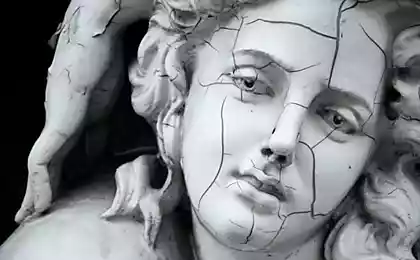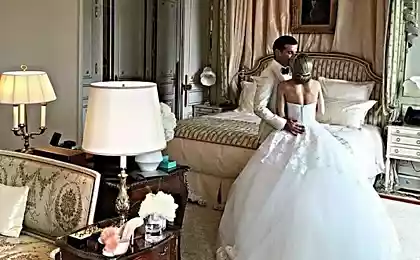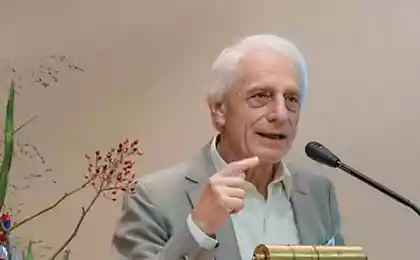164
Mine, Yours, Ours: 4 Types of Dependent Relationships

We all depend on the person we let into our lives. The difference is only in the territory it occupies in us. Or we're in it.
There are four types of dependent relationships:Dissolve in the Other.
Be a part of His life, an appendage, an addition to Him. To adopt his values and views on life.
See in the Other a mentor, a teacher – someone who is better versed in life and in what you need, in particular.
Not to understand or feel your own needs.
Do not trust yourself in the choice and do not believe in yourself as a person who can independently take responsibility for his life.
All responsibility, plans, goals, important decisions are transferred to the partner.
The other becomes a kind of abode that shelters and protects from the outside world.
“The point of my life is to be with him. He's everything to me. I'm nothing without him.
“I can’t imagine living without someone who guides you, takes care of you, and protects you.”
Such people are purposefully looking for a person who would accept them into their world, began to care and save, raise and guide them on the true path, because they do not feel viable without a caring Parental figure nearby.
Getting out of dependent relationships is, first of all, finding yourself as a separate person, increasing independence and the ability to rely on yourself and trust yourself.
It means becoming an adult who can rely on himself.
Become a guide star for the other.Determine the path of life and development of another person and push him in the right direction. To become for him a caring Mother, a strict Father, Coach, Savior and Spiritual Guru in one person.
Take responsibility for his life, his health, his nutrition, his development. Set goals, inspire, push, motivate. Be the barge that pushes him forward.
At the same time, the personal territory of the Other - his principles, worldview, desires, a system of ideas about himself, ways of interacting with the world, ideas about his own capabilities, goals and his own ways of achieving them, as well as physical territory - personal things, his space - all this is occupied. It is trampled out and felled like a clearing with weeds to plant only the necessary and useful.
The price of such care is the deprivation of another’s right to freedom, self-determination, to one’s own elections, to personal territory where entry is forbidden.
" I know what you need! Listen to me and you'll be fine!
" I raised him, made him a man! Where would he be if it weren’t for me?
“I am smarter, stronger than him. I know how to do it. And if he does everything I tell him, everything will be fine.
“I live for him. I live to make sure everything is good for him. "
People think that they live for another person, sacrificing themselves completely. And naturally, they expect gratitude.
In fact, they simply consume the other person, replacing them with their own desires and desires, filling a hole in their soul with someone else's life.
If all the effort that goes into raising someone worthy out of the Other were spent listening to oneself, and all that was nurtured in the Other was nurtured within oneself, that would be growth!
But it is very difficult to give up the missionary mission, the control and the parental attitude towards another adult. A sense of power and power.
Having given up life for the sake of the Other, you will have to face yourself, with the emptiness that will be in the place that the other person filled.
You will have to take a closer look at yourself and learn to distinguish your desires from those of others. Acknowledge your needs and allow yourself to meet them without trying to make someone else happy. And recognize the right for another person to be different and independently take responsibility for their lives.
Obtain complete power over the other.
In this case, some “perfect image” is sculpted from the partner, which exists only in his own head.
This happens by completely destroying the inner world of another person.
The other person is perceived as a complete insignificance, a slave, a thing incapable of anything worthwhile, he must be “educated” and “teached the mind” by constant criticism and humiliation.
Moreover, the qualities in which the other person is unusual will be criticized and belittled.
The main task is to make the Other completely dependent. It can be bought with gifts, provided in its entirety, the only thing that is not allowed is freedom and independence.
Responsibility for the other is declared, but in fact is not carried out: the partner is only used, his own ability to dominate, control other people's feelings and actions is tested on a daily basis.
This is a sadistic type of dependent relationship built on the principle of the aggressor and the victim. The victim is constantly under the yoke of guilt, horror and shame. She tries to meet the increasingly unrealistic demands of the aggressor, completely destroying herself as a person. The aggressor plays with it like a cat and a mouse - while the mouse is still alive, trembles, resists, it is interesting. Once the victim is completely subdued, has died as a person, all interest in her is lost. A new victim is sought, often a child.
A sense of self-importance, power, and ability to control other people’s lives is what attracts the aggressor and gives him value in his own eyes.
There is a lot of psychological and physical violence in this relationship.
If the victim manages to find help and break out of the trap, and not look for a new sadist, but gradually regain himself, faith and trust in himself, then it is possible to build a new, healthier relationship with the other person.
Use the Other as a mirror.
My light, mirror, tell me the truth. Am I the sweetest in the world, all reddish and whiter?
The mirror should answer: “You” and tirelessly praise, reflecting only the positive, incredibly beautiful qualities of the partner – his sharp mind, beauty, originality, peculiarity, unlike mere mortals.
If the Mirror comes up with something like: “You are a beautiful word no, but the princess is still whiter ...” It will be shattered in fury, and a replacement will be urgently sought, a new Mirror or Mirror, in which the mind and the unprecedented beauty of the possessor will be reflected.
A person, building such relationships, behaves like a capricious Child who expects from Parents only praise and unconditional recognition of their talents.
The partner must perform the role not only of the Mirror, but also bear the duties of the Parent - to provide, groom, cherish, spoon feed and plume to bring.
All responsibility for ensuring financial security, solving complex, vital issues rests with the partner.
“If he loves me, he must provide for me. Why do you need a husband and a man?
She should be happy just because someone like me lives with her.
It's a narcissistic type of relationship. The other is needed only as a mirror, as a weak reflection, a background on which the owner himself is more clearly and effectively visible.
Recognizing the other as an equal, visible, separate rather than reflective person is the first step in healing such relationships. The need for a person to build dependent relationships is formed in childhood. the child is looking for a way that will give him the opportunity to receive love and care of loved ones.
The family system itself dictates this way – how to behave in order to be loved, appreciated, paid attention to you, admired you. Do you have to be miserable and helpless, or do you have to be a rescuer, a hero, a martyr and responsible for everyone, or do you have to be a cruel, domineering tyrant, or the smartest, most beautiful, to meet the unrealistic expectations of the family? And often these requirements are summed up, mixed up, and create a complex system of needs and expectations that one tries to satisfy in a relationship with the Other.
It should be noted that people accurately find their half, suitable for them in the way of relationships.
When we create a relationship, we let a person into our heart, enter their territory and let them into ours. This would not be possible if there was no room for it in us, if we were so whole and self-sufficient that we needed no one else. Most people need each other, thank God.
Two loving people complement each other, feeling better with the other than without it. The only difference is the way we interact and the territory we give to or occupy from the Other.
In healthy relationships, there is attachment, but there is also autonomy, the ability to rely on yourself, on your personal resources, independent of the other person.
There is support with respect for the other person’s boundaries. In healthy relationships, people stay together not because they cannot be without each other, but because they are better together than apart.
Mature love relations are relations of people who, complementing each other, remain separate, integral personalities, have sufficient opportunities for individual self-development and have internal resources independent of the partner.
" Mature love says, “I can live without you, but I love you and therefore I want to be near you.”
No matter who we build relationships with, we will create them according to the principle to which we are used since childhood, so getting out of a dependent relationship is primarily a change in ourselves. Because in every new relationship, we bring ourselves back.
Author: Irina Dybova
P.S. And remember, just by changing your consciousness – together we change the world!
Source: dybova.ru/blog/























